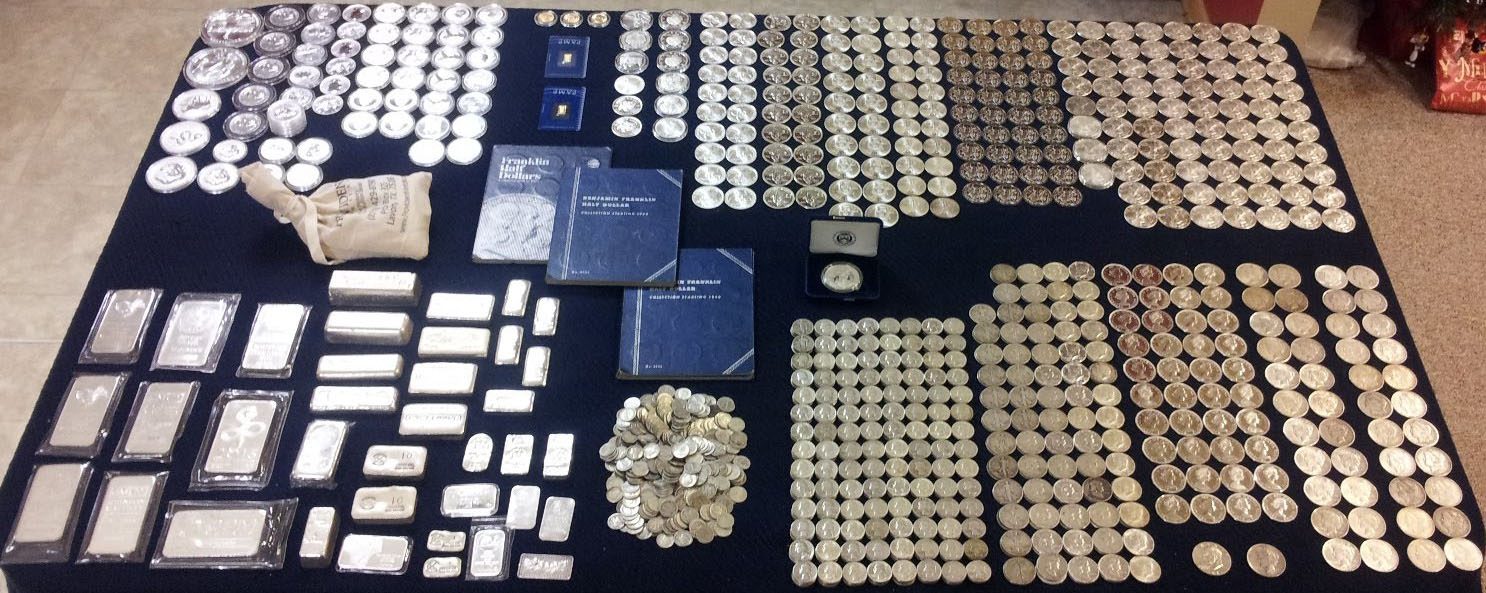

Common misconceptions about coins:
- An old coin is always valuable. False. While older coins may be worth more than their newer counterparts not all old coins are rare and have true numismatic value. The first thing you want to check is how many coins were minted that year from that particular mint. Older coins will have a “mint mark” and will identify where the coin was made. When we say older coins we mean from the 1800s to around 1945. 1970s coins are not old or rare. Coins from certain mints, such as the Carson City mint, are more sought after making them worth considerably more. When it comes to these coins it is all about condition. If you have a rare coin the best thing you can do is send it to a professional coin grading service such as PCGS or NGC to have the coin slabbed and graded. This also increases the value of your coin.
- Just because the coin is not rare does not mean it is not valuable. Quarters, half dollars, and dimes minted before 1965 are 90% silver and can be sold for their silver value. While it may not bring a big payday like a 1916 D Mercury dime, these coins can add up to decent amount. Most coin collections do not have those super rare coins, most contain a large amount of 90% silver coins. This is were the majority of the value of the collections come from.
- Error coins are always worth more. Not necessarily. If you come across an error coin the best thing you can do is to send it to a professional coin grading service like PCGS or NGC. Sometimes when minting coins, there can be a run of coins not stamped properly and sometimes it may only be one or two. PCGS & NGC track which of these coins are truly rare and will help you get the most for your coins.
- Do not believe everything you read on the internet. While the internet is a great research source, not all prices you see are accurate. People can set the price however they want when selling online. This can confuse the average person trying to research the value of their coins. Coin shops and collectors use the “greysheet” to determine value. Greysheet tracks not only the value but the number of coins currently on the market. This makes for a more accurate appraisal of your items.


If you are not wanting to sell to a local coin shop and would prefer to sell the coins individually, you may want to try a national auction. Selling though an auction house may net you more for your collection depending on their service fees. This is a great option for people who are not in a rush to sell. However, if you are an executor and have to sell the collection by a certain date to divide among the heirs this is probably not the best option for you. Auction houses take a little longer to sell your items but if you have a rare coin a couple of collectors are looking for you may luck out and get a bidding war going that will dramatically increase your profit. However, there is the other side of the coin, no pun intended, where you may not have multiple bidders and you may end up selling a rare coin for much less than its worth. But there are always pros and cons not matter how you sell your coins.
My advice is to first figure out how quickly you need to sell the collection. If you are in a hurry I suggest taking them to a few local coin shop, getting your collection appraised and selling to the highest offer. If you have a shop you deal with on a regular basis and get a higher offer somewhere else, always let them know. If they are like us we will meet or beat any legitimate offer. Always sell to someone you trust before someone you do not know. Check their B.B.B. rating and online reviews. This will give you an idea on how reputable the company is. When selling to a local shop, only sell to places that sell coins. They will be the most knowledgeable about what you have and will know what the actual value is. Not only that, they will have a market to sell your coins to, allowing them to offer a little more than a place that is just going to flip them for a small quick profit. Find a true numismatist to appraise your coins to ensure you are getting the best price for your collection. If time is not a factor the national auction house may be the better option for you. Make sure to do your research so all your extra profit doesn’t go to auction fees. Only use an auction house if you have some key date coins. If your collections is 99% silver coins you will be giving most of your profit to the auction house.
While we try to give you as much information on our site and our blog, there are always things that will be confusing. If you come across something you do not understand feel free to call us at 713-521-4444 and we will try our best to clarify any confusion. Please free free to call us anytime during normal business hours Monday thru Friday 10 am till 6 pm and Saturdays 11 am to 3 pm Central Standard Time. with any question or comments. We are always here to help and will be more than happy to assist you any way possible.






No Responses